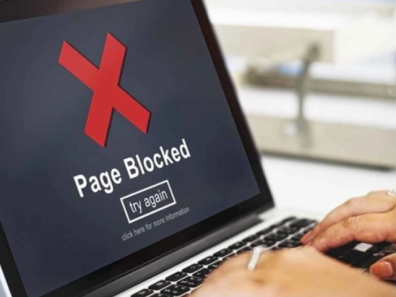Pakistanis are reportedly making up to 20 million attempts each day to access blocked explicit content through unregistered virtual private networks (VPNs), sidestepping government efforts to restrict access, according to sources cited by The News.
PTA Cracks Down on Explicit Content and Unregistered VPNs

The Pakistan Telecommunication Authority (PTA) has been ramping up efforts to limit access to such content, blocking over 844,000 websites and more than 100,000 offensive URLs. However, the widespread use of unregistered VPNs has complicated these efforts, as they allow users to bypass government blocks. Many users now complain about slower VPN speeds due to recent crackdowns on unregistered VPNs.
Why Unregistered VPNs Are a Security Concern
The PTA argues that unregistered VPNs are not just a way to bypass restrictions—they also create security risks by potentially exposing sensitive data to unauthorized users. The authority has temporarily restricted certain VPNs for registration and inclusion on an official allowlist. Since launching a VPN registration process in 2010, around 20,500 VPNs have been registered, representing over 1,400 companies, with new efforts underway to speed up the process.
Also Read: PTA Starts Blocking Unregistered VPNs Nationwide
Growing User Frustration as Free VPNs Face Restrictions
Many Pakistanis rely on free VPN services for secure browsing, and recent disruptions have caused frustration. Officials from the PTA emphasize that they are taking steps to streamline VPN registration and prevent illegal content access while aiming to balance security with public demand for unrestricted browsing.
Ministry Pushes for Strict Action on “Harmful Content”
The Ministry of Religious Affairs has recently urged the PTA to intensify its efforts to block pornographic, profane, and otherwise harmful content online. In a letter to the PTA, the ministry expressed concerns about Pakistan’s high level of access to explicit material, warning that this trend could harm public morality and social well-being.
In response, the PTA has actively blocked URLs labeled as “anti-Islam, indecent, and immoral,” amounting to about 1.3 million blocked URLs as of July 2024. A recent report shared with the Peshawar High Court highlighted that the PTA’s monitoring system reviewed 1.38 million URLs, blocking nearly 94% of them for inappropriate content.
A few days ago, the PTA started to block unregistered VPNs nationwide, which captured everyone’s attention.
Social Media Platforms Face Scrutiny
Beyond blocking websites, the PTA has taken action on social media platforms, blocking URLs across Facebook, TikTok, and Twitter that host explicit or inappropriate content. Notably, 147,569 Facebook URLs, 125,600 TikTok URLs, and 53,872 Twitter URLs have been restricted for violating these guidelines. TikTok has removed over 113,000 content flagged as immoral or anti-Islamic since 2020, with nearly 25,000 removed this year alone.
As Pakistan navigates these complex issues, the PTA balances internet freedom with national values and security, striving to keep pace with technology while addressing rising public concern over online content.










